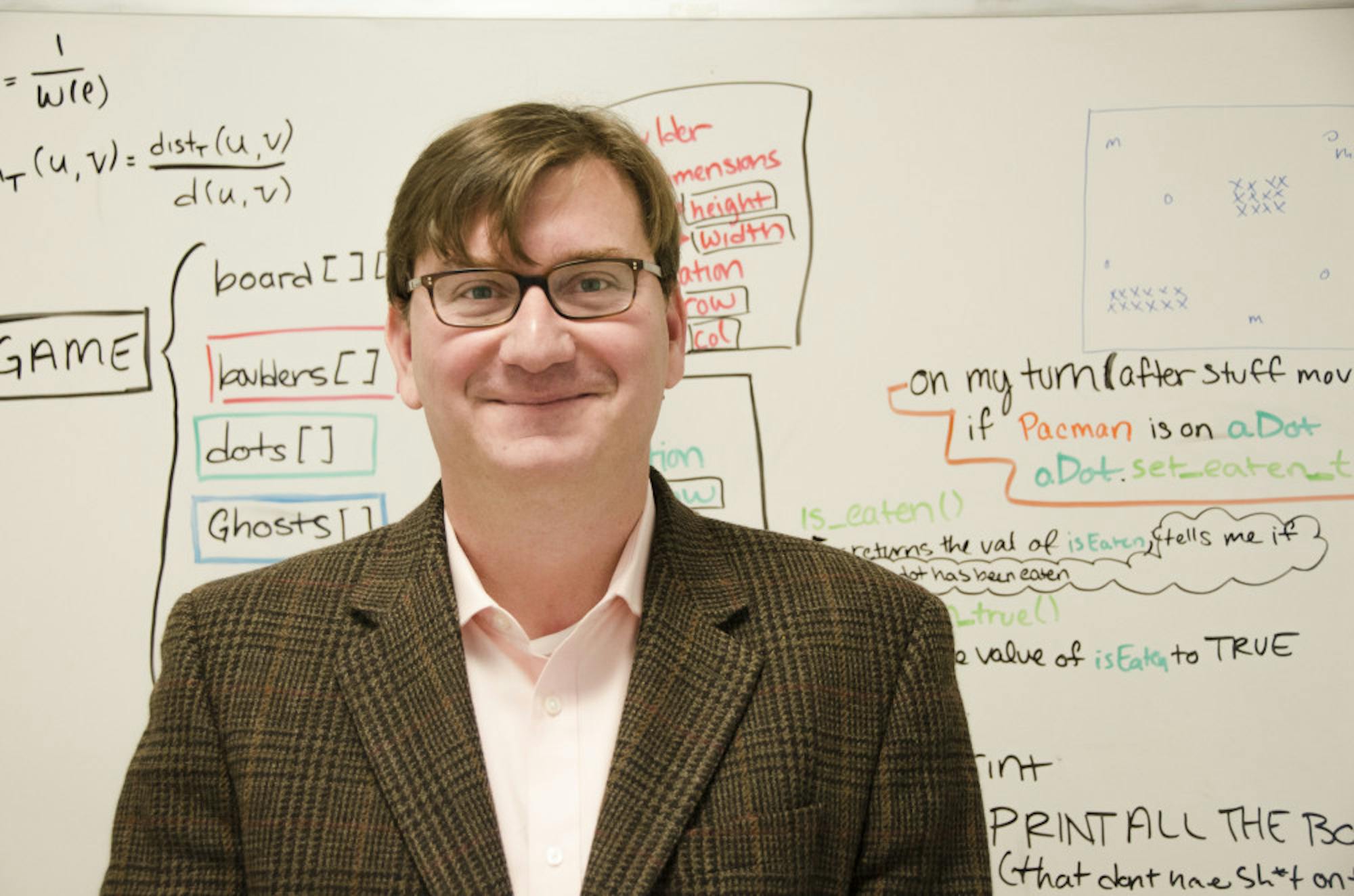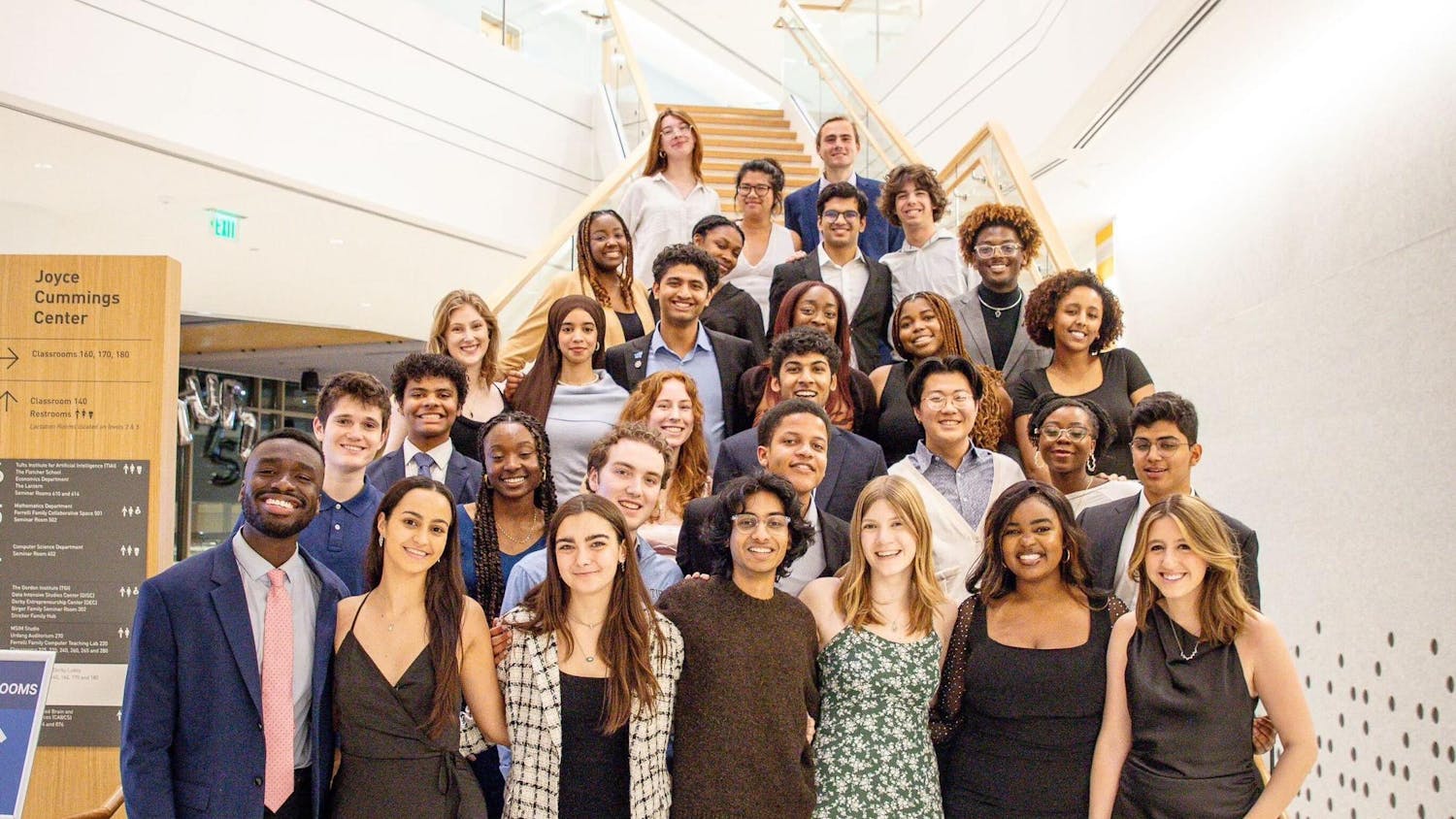The email emphasized that the decision was not made by the the computer science (CS) department. Instead, a faculty member applying for tenure is vetted in a multi-stage process, starting with a department vote, then going to the eight-member Faculty Committee on Tenure and Promotion, of which Provost David Harris is a nonvoting member, before going to the dean of the appropriate school who makes a decision in conjunction with the provost and the president, with the final decision handed down by the Board of Trustees, according to the Office of the Secretary of the Faculty website.
Hescott said he chose to leave the CS department after being denied tenure. He noted he was given no explanation for the decision, only a total vote tally from the Committee on Tenure and Promotion and the final "no" from the Board of Trustees.
While Hescott said he has been offered other opportunities during his 10 years at Tufts, it took not getting tenure for him to make the decision to leave the CS department.
Hescott added that he values the time he spent at Tufts.
“My 10 years at Tufts [have] been one of the highlights of my life," Hescott wrote in an email to the Daily. "The faculty and staff in the computer science department are like family, and I thank them for their support. The students at Tufts have been absolutely amazing, I will miss working with them and I am proud to have their support."
Over the course of his 10 years at Tufts, Hescott won seven awards for teaching and advising, according to his website.
Many members of the Tufts community expressed frustration at the decision. For example, Ashley Hedberg (E '15), posted an open letter to the Faculty Committee on Tenure and Promotion, the provost and the Board of Trustees on blog website Medium, summarizing 271 reactions from members of the Tufts community.
The reactions described in Hedberg's article portray Hescott as a professor committed to increasing diversity in computer science and mentoring students professionally and intellectually. In the letter, which was posted on Medium, community members criticized the decision to deny Hescott tenure as prioritizing research funding over instructor quality.
Collins Sirmah (LA '16), who was one of Hescott's advisees, wrote in an email to the Daily that there is no justifiable reason to explain why Tufts did not give Hescott tenure.
Fisher said she understands why the Tufts community may feel angry about the decision, especially since Hescott had a meaningful impact on many Tufts students’ careers and faculty members’ lives.
“[Hescott] made a huge difference to many students and faculty members, including me, which accounts for the outpouring [of] support he received when he left,” Fisher wrote in an email to the Daily. “I know that many students, alumni, faculty and staff members are very upset.”
Tufts alum Eliza Schreibman (E ’17) told the Daily in an electronic message that she was incredibly frustrated and disappointed by the decision, a feeling that she said was shared by many of her professors and classmates in the computer science department.
“I felt as if we were all sharing our frustration together, since Ben had been so important to many of our experiences at Tufts and in the department,” she said. “He was the most charismatic, but relatable lecturer … He made the most abstract and advanced concepts comprehensible and accessible. He was so easy to talk to during office hours and truly wanted to see us learn and struggle productively, not fail helplessly.”
Schreibman, who was one of Hescott’s advisees, added that his impact on students was more than just academic for her and others.
“I first met Ben at an oSTEM [Out in Science, Technology, Engineering and Mathematics] panel where LGBTQ faculty who were out talked about their experiences in academia and industry. It was so amazing to me, as a queer computer science and engineering student who didn't know many students (let alone faculty) who were out, to hear Ben speak,” Schreibman said. “He was truly a great role model and I am very upset that future students will not have the privilege of meeting him or just being in a department shaped by his advocacy for minority students.”
Computer Science Senior Lecturer Ming Chow also addressed the denial of Hescott’s tenure in a public post on his GitHub website. He emphasized Hescott's value to the university and that the Department of Computer Science had no role in the tenure decision.“I am posting this publicly [because] … it is absolutely necessary to communicate to our students that we were not the ones responsible for this decision," he wrote.
Fisher said she could not provide details about Hescott’s tenure case publicly.
Harris explained that deliberations concerning tenure cannot be discussed publicly, but the process is designed to take into account multiple perspectives.
“One of the fundamental aspects of tenure is that it is a confidential process, and we have to honor that confidentiality out of respect for individuals’ privacy," Harris wrote in an email to the Daily. "Decisions about tenure and promotion are made with great consideration and care. They involve extensive review and input from students and mentees, external experts, faculty, deans, the Provost, the President and the Board of Trustees."
Harris explained that the tenure process involves a holistic review of the several criteria, including scholarly productivity, evidence of independent scholarly contributions to the candidate’s field of study and teaching effectiveness and service.
Schreibman said she was disillusioned with the tenure process and that the decision to deny Hescott tenure was an example of her issues with it.
“[The tenure process] places so little value on the things students care about most: professors' ability to teach and connect with us," she said.
In Hescott's absence, Fisher said she and colleagues are working to ensure the CS department is adequately staffed.
"We are working very hard to recruit new faculty members to the computer science department who will help us continue to provide wonderful learning experiences for our students,” she said.
In particular, in his GitHub post, Chow said there are four new faculty members starting in fall 2017.
Hescott will be joining the College of Computer and Information Science at Northeastern University as a teaching professor and Director of Broadening Participation this semester. Hescott said in his new job, he will continue to keep his role “student-centered" and work to make computer science accessible to all.
Liam Knox contributed reporting to this article.






